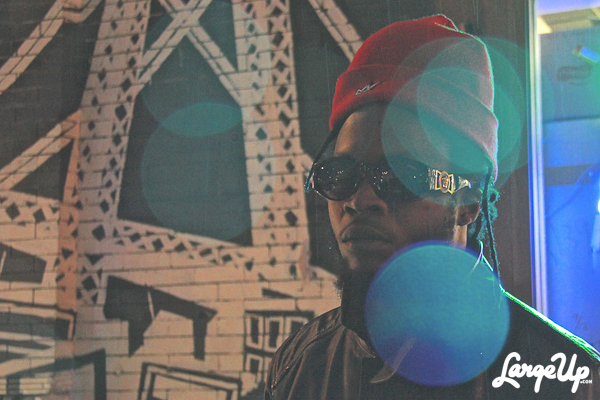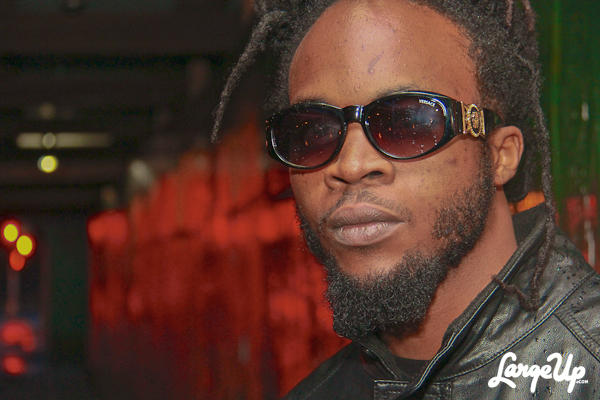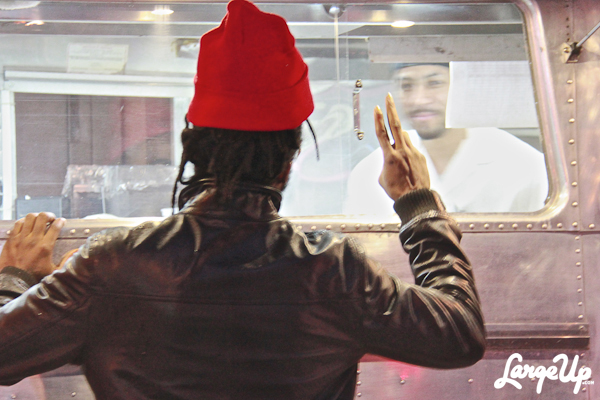LU: Being good helps.
P: The challenge is introducing the culture and the city to the world slowly. It’s kind of like a chef who’s got some crazy casserole concoction he wants people to try. In order to get people to try it, you’ve got to serve it up with something that they know–some rice or potatoes, things that are normal in the world you’re in. That’s how I’m looking at my music, like I’ll give you a little bit of where I’m from. [Before NWA] if someone were to tell you “Straight Outta Compton,” you might not know where Compton was. So I might say Savan, my neighborhood in my city… if I say it enough, if we do enough videos, we put it on the map, and before you know it it’s common knowledge that Savan is a place in St. Thomas. It’s like homework, but constant homework —I’m building not just a brand for myself, but a lane for any other hip-hop artists that can make substantial music for the market to ride through.
LU: Anytime there’s money, vacations and sunshine, there’s always another side to it. One of the things you did with your mixtape was showing the two different sides to St. Thomas. Tell us about the significance of the title.
P: The mixtape is called History: Story of a Young Boss in America’s Paradise. Small Island, Big Dreams is going to be [the name of] my official EP. History is about what we’re doing, like putting a video shot in St. Thomas on MTV Jams. No one’s ever done that. Me putting a video on MTV and making sure that kids and people from almost every neighborhood in that island got to be in it, and got to see themselves on TV… That’s going to change a lot of those people’s lives, just for the simple fact that they now know that they can be on TV, and they don’t have to win the lotto to do it.
Back home, I know probably 10-30% of the population of St. Thomas. [I used to] come to New York and tell certain cats that I was an artist from the Virgin Islands, and they’d be like “Alright man, come to the studio,” then when I get to the studio, they’re like “I really want a reggae hook for this song right here,” and I’m like, “Well, I’m not a reggae artist.” I understand why they would think so. It’s You’re from the islands, you said you were an artist, it has to be reggae. I’m trying to lift those little stereotypes off of the Virgin Islands, because we’re really unlike any other island. We’re an American island, we have every culture, like New York. It’s kind of a melting pot in the Caribbean. I’m calling it the last frontier.






